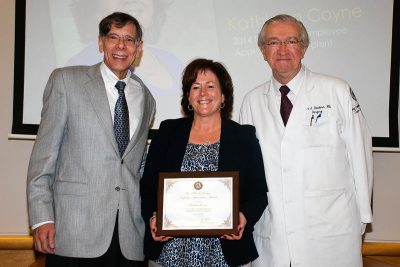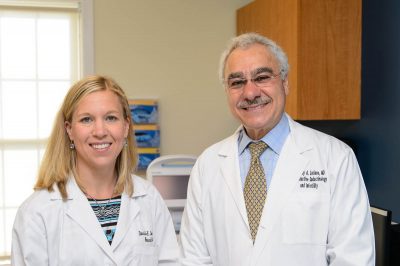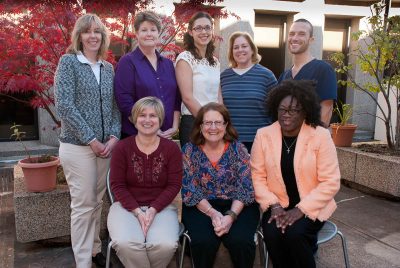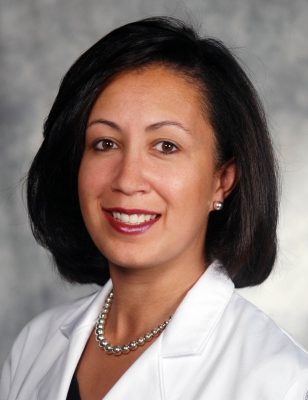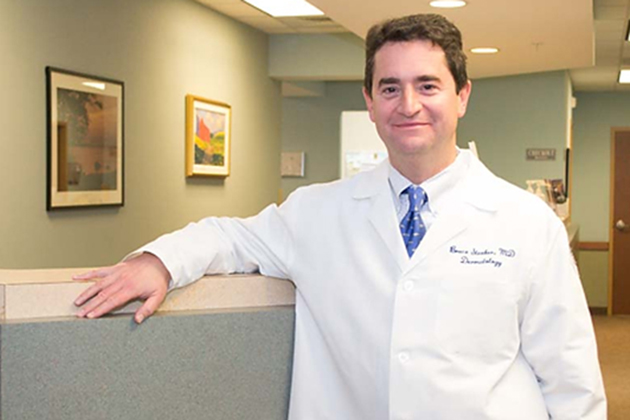
Dr. Andrew Arnold, a world-renowned physician scientist at the University of Connecticut School of Medicine and director of UConn Health’s Center for Molecular Medicine (CMM), has been elected a Fellow of the American Association for the Advancement of Science. AAAS Fellows are elected for their scientifically or socially distinguished efforts to advance science or its applications. This year’s fellows were formally announced in the current issue of the journal Science.
Arnold holds the Murray-Heilig Endowed Chair in Molecular Medicine at UConn. He is also a professor of medicine and genetics/developmental biology, and serves as chief of the Division of Endocrinology and Metabolism at UConn Health in addition to his leadership of the CMM.
The AAAS elected Arnold “for distinguished contributions to the fields of molecular endocrinology and oncology, particularly for pioneering discoveries in human cancer pathogenesis and parathyroid gland neoplasia.”
“I was delighted and humbled to learn of my election as an AAAS Fellow,” said Arnold. “This is a great honor, which also carries special meaning for me because the first scientific conference I ever attended, during high school, was an AAAS annual meeting – an experience that catalyzed my desire to help advance human health through science. Also, many terrific students and trainees in my lab made key contributions over many years to our research, and they certainly share in this wonderful recognition by the AAAS.”
Arnold is an elected member of the American Society for Clinical Investigation and the Association of American Physicians, and has received multiple national and international honors for his research. He also serves as the chair of the Biomedical Research and Healthcare Technical Board of the Connecticut Academy of Science & Engineering.
The American Association for the Advancement of Science is the world’s largest general scientific society, and publisher of the journal Science. AAAS was founded in 1848, and includes 261 affiliated societies and academies of science, serving 10 million individuals. The tradition of AAAS Fellows began in 1874. New fellows will be presented with an official certificate and a rosette pin during the 2015 AAAS Annual Meeting in San Jose, Calif. on Feb. 14.
